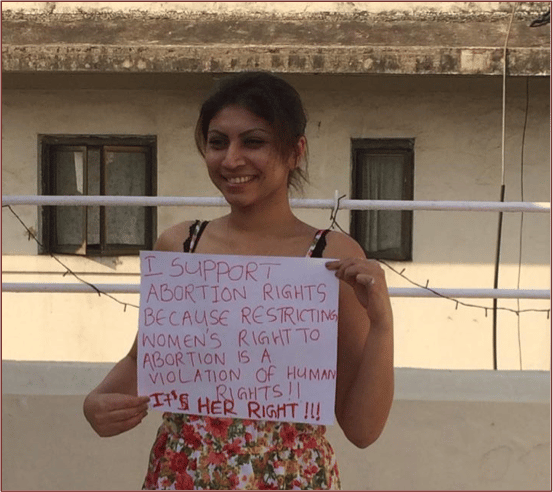
by Sarah Soysa, volunteer at the Family Planning Association of Sri Lanka
Abortion myth-busting is urgently needed, as I discovered from several consultations and social media dialogues we had recently in Sri Lanka. Even today many people say that women can use contraception to avoid pregnancy, without knowing the realities of stigma around access to contraception and the lack of youth friendly health centres in the country. There is still a lack of understanding of the importance of providing comprehensive sexuality education (CSE) in schools. And still, the argument of “why can’t she place the child for adoption” is used too often, failing to realize that a woman shouldn’t go through a pregnancy if it will affect her physical, mental, emotional or social well-being. Estimates suggest that up to 125,000-175,000 clandestine (or ‘illegal’) abortions take place every year. [1] Nearly 12% of maternal deaths in Sri Lanka are due to unsafe abortions – the second most common cause of direct maternal deaths. It must also be noted that sources suggest that 86-96% of these abortions are sought by married women. This busts the biggest myth that unmarried, so called ‘promiscuous’ young women seek abortion the most.
Youth Advocacy Network Sri Lanka recently had a national ‘Think Tank’ with medical professionals, journalists, movie makers, youth, charity workers, medical students and government ministry representatives on issues related to unsafe abortion – What we as young people can do and what we need the authorities to support us with. The discussions brought up the lack of accurate information for young people on their sexual and reproductive health and rights (SRHR) and the issues related to a lack of support for health care providers as a result of stigma and legal restrictions. This diverse group of stakeholders and other supporters will hopefully increase the legitimacy of national voices and result in an increase in visibility and a change in the existing law.
The Sustainable Development Goals that will be adopted this month include both comprehensive sexuality education for everyone and reproductive health and rights in order to ensure that young people have the right to make informed choices on their sexuality. This should result in issues related to SRHR and unsafe abortion being addressed at both the local and national levels. In the meantime, we must work on strengthening evidence-based information on unsafe abortion and also on safe abortion methods such as medical abortion. We need to build a youth movement to advocate for progressive policy changes which look at access to abortion as a human right.
In Sri Lanka, we recently started a hotline to provide accurate information on contraception and medical abortion, helping women to make informed choices about their reproductive health and avoid unsafe methods of abortion. The hotline enables women to use Misoprostol correctly for a safe abortion and their stories of unmet need are documented to advocate for changes in the law related to abortion.
Along with legal changes we strongly need sexuality and relationship education to go hand in hand with advocacy on abortion access. Youth-friendly non-judgemental health services will further strengthen the discourse. Till that day we young people will be advocating: “Nothing for us without us”.
Sources
[1] Women and Media Collective (2014). Country Profile on Sexual and Reproductive Health. Prepared for ARROW. Colombo.
https://youthagainstabortionstigma.wordpress.com/2015/09/28/abortion-myth-busting-and-sex-education-are-key-to-ensuring-womens-rights-as-human-rights/



